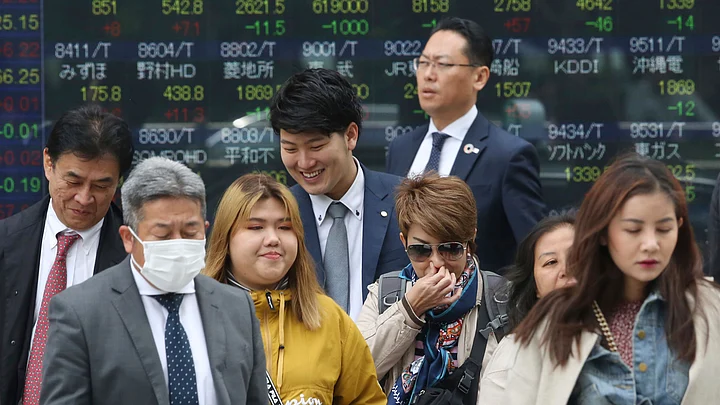Major share benchmarks were mixed in Asia on Wednesday after China announced its economy grew at a better than expected 6.4 percent annual pace in the last quarter.
Japan’s Nikkei 225 index gained 0.3 percent to 22,277.97 and the Shanghai Composite added 0.3 percent to 3,264.67. Hong Kong’s Hang Seng index edged 0.1 percent higher to 30,152.11 while the S&P ASX 200 in Australia lost 0.3 percent to 6,257.20.
Shares rose in Taiwan and Singapore too.
China's 6.4 percent pace of economic expansion in January-March was in line with Beijing's official annual target for 6-6.5 percent growth and suggests government efforts to halt a slowdown are working.
However, it matched the previous quarter for the weakest growth since 2009 and did little to spur buying enthusiasm.
"It's not entirely clear what is behind this strength. Growth in industrial sales for export edged up last month from 4.2 percent year-on-year to 5.7 percent but doesn't stand out as especially strong," Julian Evans-Pritchard of Capital Economics said in a commentary.
“Domestic demand has picked up too, but likewise, the gains appear more modest than those in industrial output,” it said.
Meanwhile, Japan released trade data for March showing its exports fell 2.4 percent from a year earlier, while the trade surplus sank 33 percent. Analysts said the figures suggest demand overall remains weak.
On Wall Street, stocks closed slightly higher Tuesday, erasing modest losses from the day before. The gains followed a rally in overseas stock indexes and came as investors sized up the latest batch of company earnings reports.
Financial stocks led the way higher as bond yields rose. That drives interest rates higher, enabling banks to make more money on loans. BlackRock and Progressive led the sector after each company reported solid quarterly results.
Qualcomm powered technology sector stocks higher, gaining 23.2% in its best day in 20 years, on news the chipmaker and Apple had settled their bitter legal dispute centered on some of the technology that enables iPhones to connect to the internet.
The deal requires Apple to pay Qualcomm an undisclosed amount. It also includes a six-year licensing agreement that likely involves recurring payments to the mobile chip maker.
The surprise truce announced late Tuesday afternoon came just as the former allies turned antagonists were facing off in a federal court trial that was supposed to unfold over the next month in San Diego. The resolution abruptly ended that trial, which also involved Apple's key iPhone suppliers.
(At The Quint, we question everything. Play an active role in shaping our journalism by becoming a member today.)
